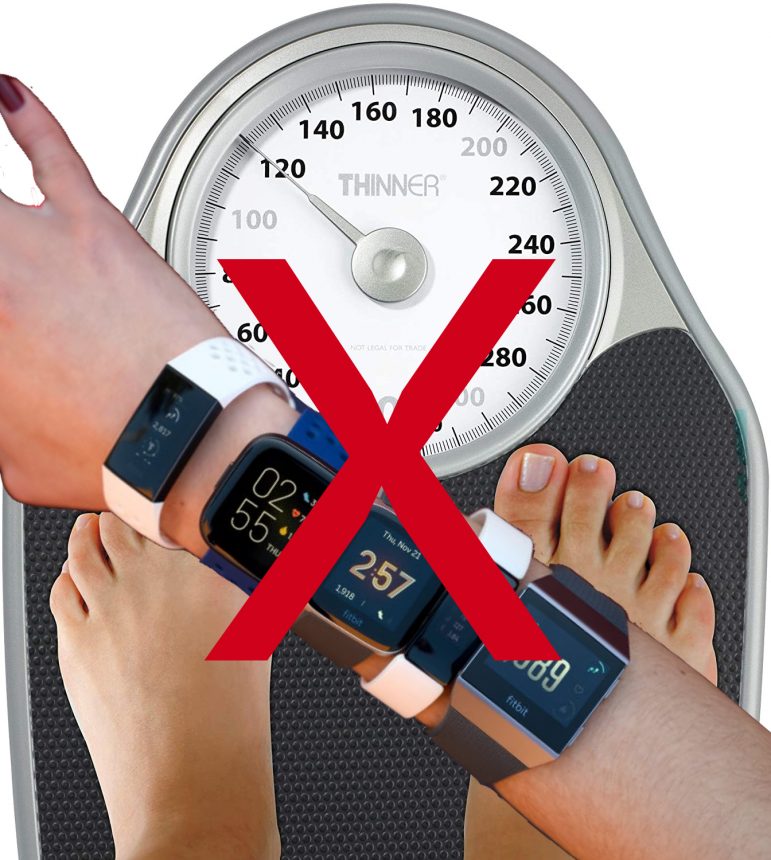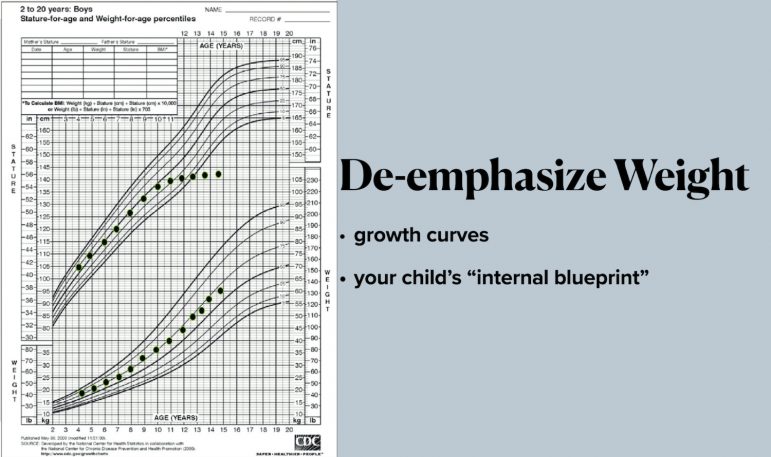In a 90-minute program “Positive Body Esteem and Healthy Relationships With Food” for viewers of PEF’s Education Speaker Series, clinical psychologist and Piedmont parent Dr. Ariel Trost took on an urgent topic — one that has only grown more so since the onset of the coronavirus pandemic.
We are seeing an unreal surge in eating disorders.
Dr. Ariel Trost

A UC Berkeley graduate with a PhD from the University of Texas, Austin, and now in private practice in Piedmont, Trost specializes in treating and educating parents and school communities about eating disorders, body image, healthy eating, exercise, and related health issues.
With 46 percent of 9-year-old children food restricting (over-controlling or eliminating palatable foods), 81 percent of children by age 10 beginning to diet, and 71 percent of teens stating they want to be thinner, Trost talked about the dangers children face and how parents can help them navigate the “wellness” or “healthy eating” food culture of today that is sometimes not that different from the diet-crazed trends of the past. She noted that in her practice she has found the two groups with the fastest growing rates of eating disorders are boys and children ages nine to eleven years old.
For a parent to recognize when a child’s eating becomes disordered requires self-awareness and up-to-date information. Experts and science have demonstrated that a parent’s conscious and unconscious attitudes and behaviors related to eating, movement and body image shape the family dynamic around these highly fraught, interconnected issues.

In examining their own beliefs, parents might ask themselves: Do I grab a bag of chips, go back to work on the computer and munch mindlessly, or do I fill a bowl, sit with someone to share the treat, and enjoy a social snack time? Do I speak only of moving as exercise and a chore or obligation, or do I send messages about joyful movement found in walks, bike rides, dog walking, or dancing in the living room to favorite tunes?
Trost identified four cornerstones for creating a home environment and habits that support best practices for parents: de-emphasize weight and numbers; examine one’s own nurturing attitudes and behaviors; craft and model positive eating and exercise conditions and choices; and build a household infrastructure that encourages curiosity and supportive conversational opportunities.

She emphasized that families should have no tolerance for body shaming and “fat talk” that reinforces idealized thinness, such as, “You lost weight! You look great!” Likewise, avoid stressful punitive measures that would deny children desserts or treats — like making dessert a reward for a ‘clean plate.’
Today’s restrictive “healthy” eating regimes—think Paleo, Whole30, veganism, cleansing/fasting models — are clearly soft-pedaling their way into kids’ lives and psyches. Parents might consider dinnertime habits: have one easy-to-fix nutritional choice versus catering to idiosyncratic diet needs.

In thinking about how and when to assert boundaries around food and exercise, and when to be concerned, Trost cautioned that bathroom scales, Fitbits and other measuring devices are potential “tools of compulsion,” suggesting parents remove them if a child becomes overly fixed on tracking data and numbers.
One simple way for parents to track healthy development is to look at their child’s individual (not average) growth chart reviewed by pediatricians (CDC samples below). A child deviating from their individual projected growth curve is a warning sign of a body in distress.

For those who might be worried, Trost offered book suggestions* and reiterated earlier guidelines: be curious, open — and avoid moralizing, amplifying, or expressing judgement about the issue. If parents see warning signs like skipping meals, rigid dietary choices, over-exercising or weight loss significant enough for a child to deviate from their individual growth patterns, they should reach out to their pediatrician or a licensed therapist.
Trost has provided PEF with additional resources and suggestions. View the slide deck HERE.
Learn more at drarieltrost.com.
*Resources
- Dianne Neumark-Sztainer’s research and book, “I’m, Like, So Fat!”
- “Teens Can Read: No Weigh! A Teen’s Guide to Positive Body Image, Food, and Emotional Wisdom,” by Shelley Aggarwal, Signe Darpinian, and Wendy Sterling
ESS | Upcoming Events:
- Boys & Sex: Young Men on Hookup Culture, Love, Porn, Consent and Becoming a Better Man | Peggy Orenstein | Tuesday, Feb. 9 from 7:30 – 9 p.m.
- How to Raise Successful People: Helping Kids Find Their Own Path | Esther Wojicki | Tuesday, March 23, 7:30 -9 p.m.*

